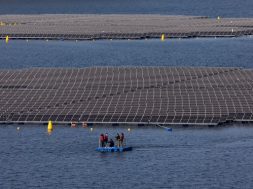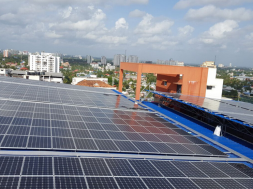
The United States, which had initiated the dispute in 2013, said at the special meeting of the DSB that it was pleased with all of the findings of the panel and Appellate Body. The US said that while it supported India’s efforts to promote solar energy in line with the global fight against climate change, it was of the view that India’s domestic content requirements undermined these efforts by requiring the use of more expensive domestic technology.
The US, highlighting findings from the AB report, noted that exceptions in WTO rules for government procurement did not apply to instances when a member purchased one product, but discriminated against another wholly different product. Besides this, WTO rules also contain exceptions in cases of supply shortages. The US noted, however, that the findings state that the shortages described in the rules referred to situations in which the quantity of available supply of a product, from all sources, does not meet demand in a relevant geographical area or market. The US further highlighted the finding that none, save one, of the domestic or international instruments identified by India fell within the scope of “laws or regulations” described by another exception to WTO rules.
India, meanwhile, said it was disappointed with what it viewed as an unduly strict interpretation of the exception in WTO rules relating to government procurement. India said this limited the policy space available for undertaking government procurement and did not afford sufficient consideration to the unique nature of solar cells and modules in solar power generation. India said it was also disappointed with the findings relating to the exception in WTO rules in cases of supply shortages. India said the AB ruling effectively confined the use of this exception to restraints on exports and not those applied to imports.
Moreover, India said the principles set out by the AB were ambiguous when it came to findings over certain rules for measures necessary for securing compliance to WTO-consistent laws and regulations. India further stated that the granting of incentives for both the importation and domestic manufacturing of solar cells needed to occur in parallel. India said it was committed to achieving this in a manner that respected the rules of international trade. The European Union, a third party to the dispute, welcomed the findings on domestic content requirements and their relation to the relevant WTO rules discussed in this dispute.
The US also said it welcomed in general the provision of separate opinions in AB reports. However, the US said the separate opinion offered in the AB report for this dispute did not relate to an issue raised in the appeal. The US said this was thus another example of obiter dicta, or remarks not necessary for reaching a decision, which the US noted was a problem it had referred to in the past. The US said this was an inefficient use of the AB’s already limited resources. The EU, meanwhile, was of the view that AB members had a right to issue separate opinions and thus it did not share the US concern regarding this matter.














